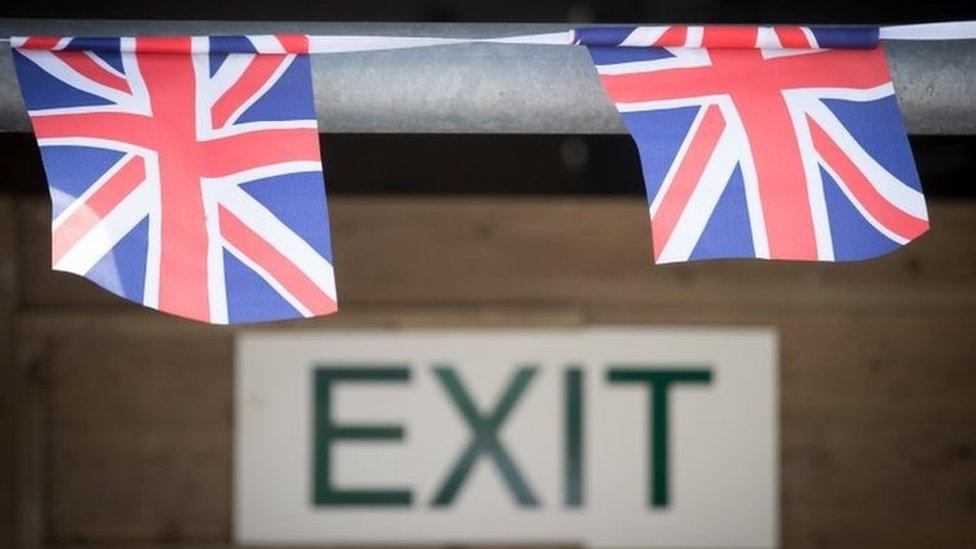Brexit: Two can play that game theory
- Published
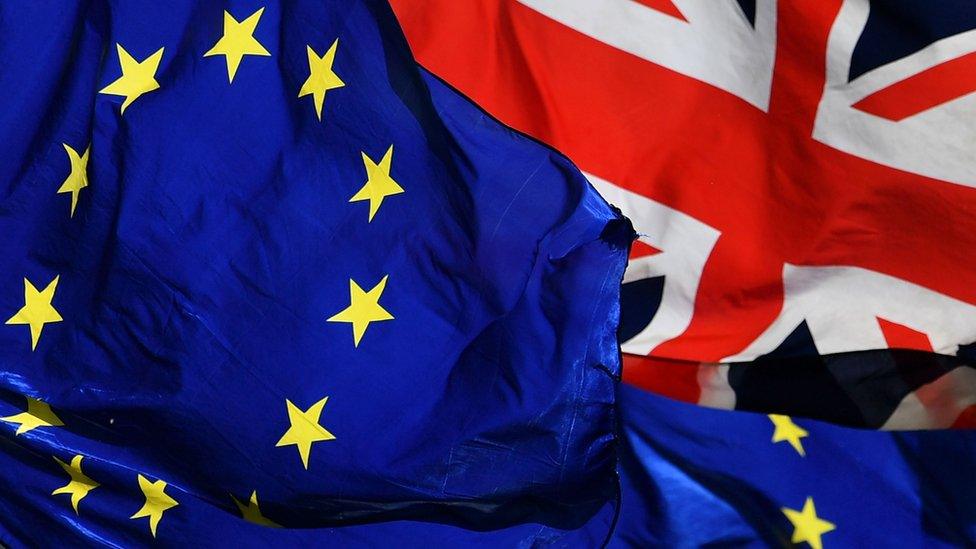
Nothing much will happen in Brexit negotiations, if anything at all, until the G7 summit in Biarritz in three weeks' time, and the UK is heading for a no-deal exit.
That is the message that EU officials have taken from the first set of meetings with Prime Minister Boris Johnson's new negotiator, David Frost.
Bluntly, Mr Frost and Brexit Secretary Steve Barclay have said negotiations require the Irish backstop to be jettisoned, and the EU have said no.
Furthermore, they have spotted what they say is the conscious UK strategy of trying to isolate and pressurise Taoiseach (Irish Prime Minister) Leo Varadkar, and wanted to send a message from the rest of the EU27 of absolute support for Dublin.
So far, so predictable, in terms of the theory games. Two can play them. Take it all with a pinch of salt is what No 10 suggests, but then, that might also apply to their own "do-or-die" Brexit pledge and ignoring Parliamentary confidence vote gambits.
But this went well beyond just the backstop - the set of policies designed to maintain the absence of a border on the island of Ireland, whatever occurs with Brexit.
This is also now about the much-cherished (by the PM's Brexiteer allies) offer made in March 2018 of a post-Brexit, tariff-free, quota-free trade deal between the UK and EU.
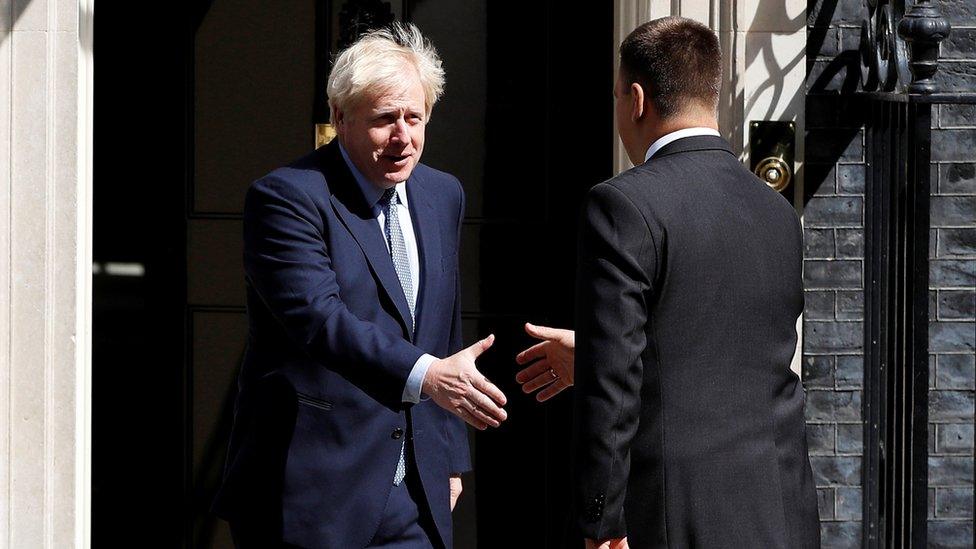
Boris Johnson met Estonian Prime Minister Juri Ratas in Downing Street on Tuesday
It was stressed at Monday's EU27 meeting that this offer was made only on the condition that the UK respects a level playing field with the EU after Brexit on regulatory, environmental, social and other matters.
This, as a result of the first meetings of the Johnson administration, is seen as increasingly under threat, although it was felt to be certain under his predecessor, Theresa May.
This is a significant change. In Brussels, they argue it is exactly what was promised by the EU Council in its March 2018 negotiation guidelines, by the highly conditional offer that it was ready to start work towards an "ambitious and wide-ranging free trade agreement insofar as there are sufficient guarantees for a level playing field".
The first detail was the agreement would address "trade in goods, with the aim of covering all sectors and seeking to maintain zero tariffs and no quantitative restrictions".
The new approach of UK negotiators is considered not just to be about the backstop, but also "radically different" to the general post-Brexit approach to continuing general alignment to Europe.
"It's pretty clear that this is not just an objection to the backstop. The government has people who resigned over Chequers, which was built on alignment. The [zero-tariff] offer in March [2018] was pre-conditioned on fair competition guidelines," said one Brussels official.
A long-term trade deal that does not eliminate all tariffs ups the ante considerably. The big picture here is that the first salvos of discussion have resulted not just in a presumption of no deal, but in planning for a more distant long-term relationship - involving some tariffs.
The presumption in Downing Street is that following a no-deal Brexit, the German carmakers and Italian prosecco lobby will at that point use their lobbying power to ensure a tariff-free trade agreement.
Brussels insists that it will have all the same conditions on money, Ireland, and a level playing field for an agreement. But there will be the added twist of negotiating under the threat of a single veto from any single EU nation (think Ireland or Spain).
They say the EU has repeatedly demonstrated that it values its internal economic coherence, and stability and solidarity, more than its trade surplus with the UK.
Is that a bluff? No.
Is Mr Johnson bluffing? Apparently not.
But that has consequences well beyond this October.
- Published6 August 2019
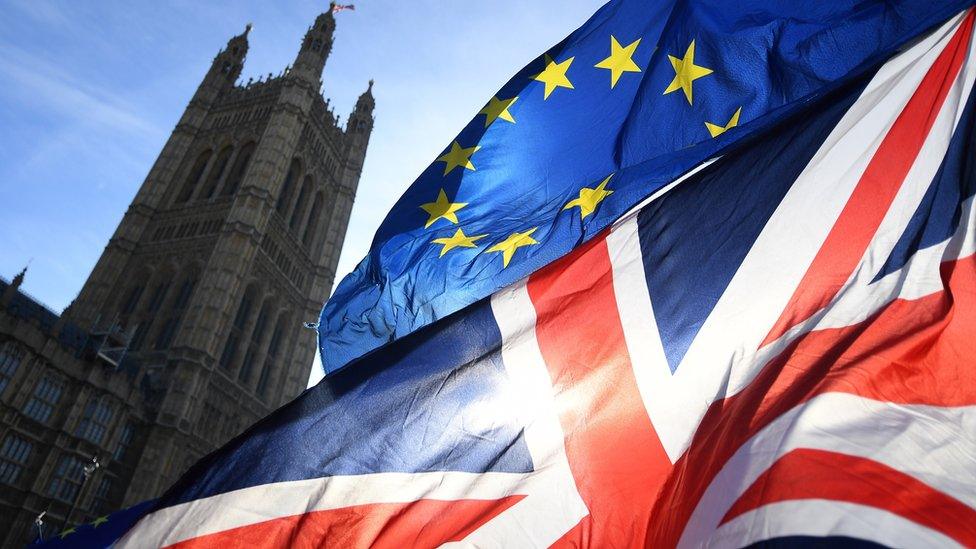
- Published13 December 2020
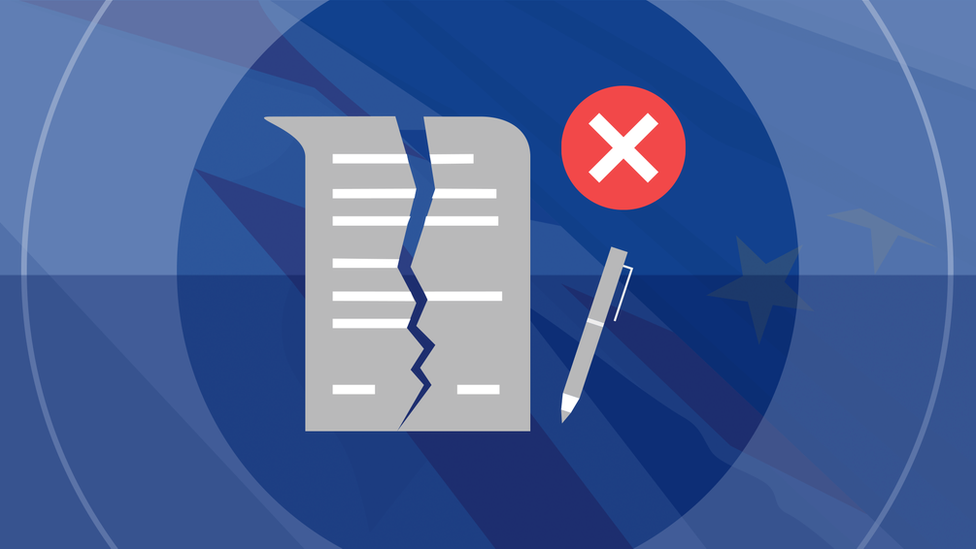
- Published5 August 2019
